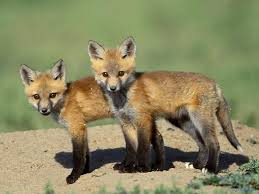On page 11, Spiegelman tells us that his father’s second wife Mala was a survivor too, like most of his parents’ friends. Why does Spiegelman call Mala a survivor? What does he mean?
Mala was a survivor of World War II, specifically The Holocaust, as she is a Jewish German. I think that Vladek was implying that Mala was a very strong character and that she was tough.
What kind of relationship does Art Spiegelman and his father, Vladek have? Use specific pictures and text to support your answer.
Art and Vladek have quite an odd relationship. Even though their attitudes clash, Vladek clearly wants the best for his son and wants him to succeed in life. This is clearly demonstrated on page 13 when Vladek says to his wife, "A wire hanger you give him! I haven't seen Artie in almost two years - We have plenty Wooden hangers." In this scene, Vladek shows that he cares about his son. Also, on page 14, the reader can distinctly see that Vladek wants to please his son. When Art asks to write a book about him he says, "Better you should spend your time to make drawings what will bring you some money.. But, if you want, I can tell you..."
Why is the chapter called “The Sheik”?
The chapter is called The Sheik because the whole chapter is about when Vladek was a young man and he says that he was very handsome. In the background at the start of the chapter, there is an image of the movie poster of The Sheik. He said that he looked like Rudolph Valentino, so it was only appropriate that it was called The Sheik because Rudolph was the leading man in that movie.
Why does Vladek choose Anja over Lucia? What do you think of his choice?
I think that even though Vladek may have chosen money over beauty, he also chose Anja because he said that she was interesting to talk to and that she had the most beautiful literature. She would write him letters that were in lovely Polish. He says, "And then she started writing to me such beautiful letters - Almost nobody could write Polish like she wrote."
Why does Vladek ask Art not to write about Lucia in his book? Why doesn’t Art listen to his father? Do you think it is right for Art to break his promise?
Vladek is old-fashioned and so he did the chivalrous thing and asked Art not to write about Lucia because he didn't have her permission and he wanted to be respectful. I don't know if it was right for Art to break his promise, but I think that Art chose to write about her so that he could include an accurate portrayal of his father's character. Much like how later in the book when Art included the racist comments Vladek made about dark-skinned people.
